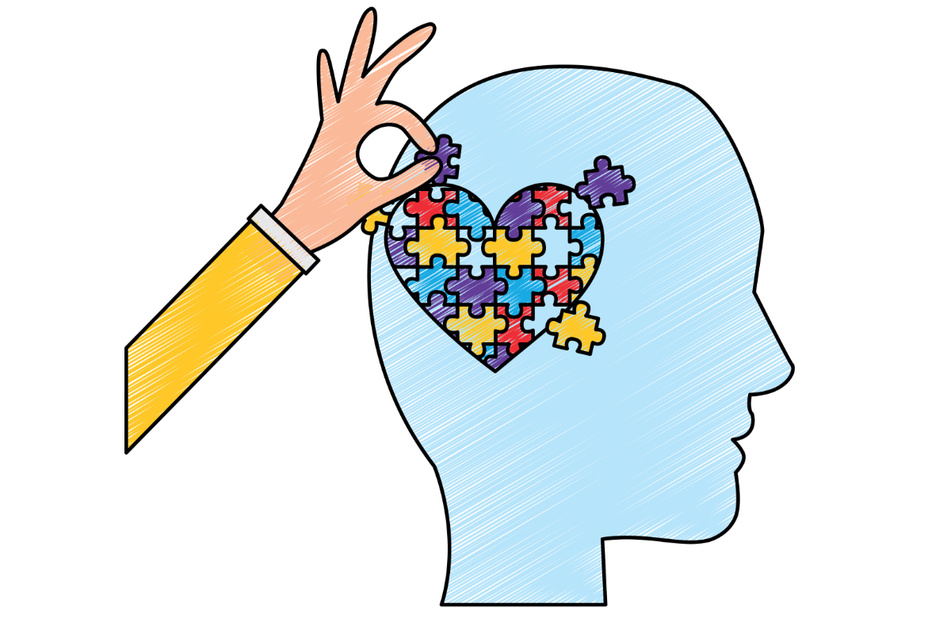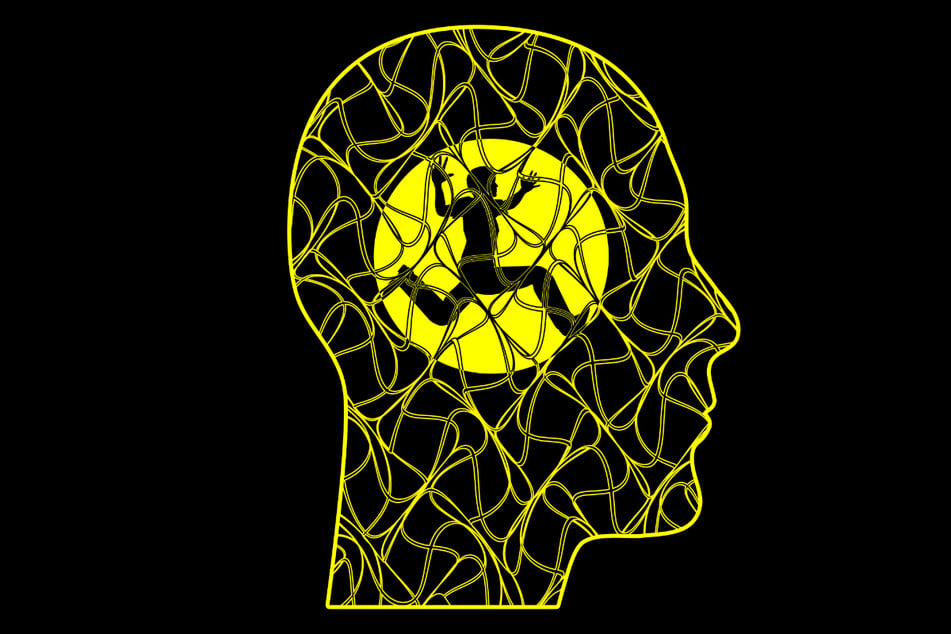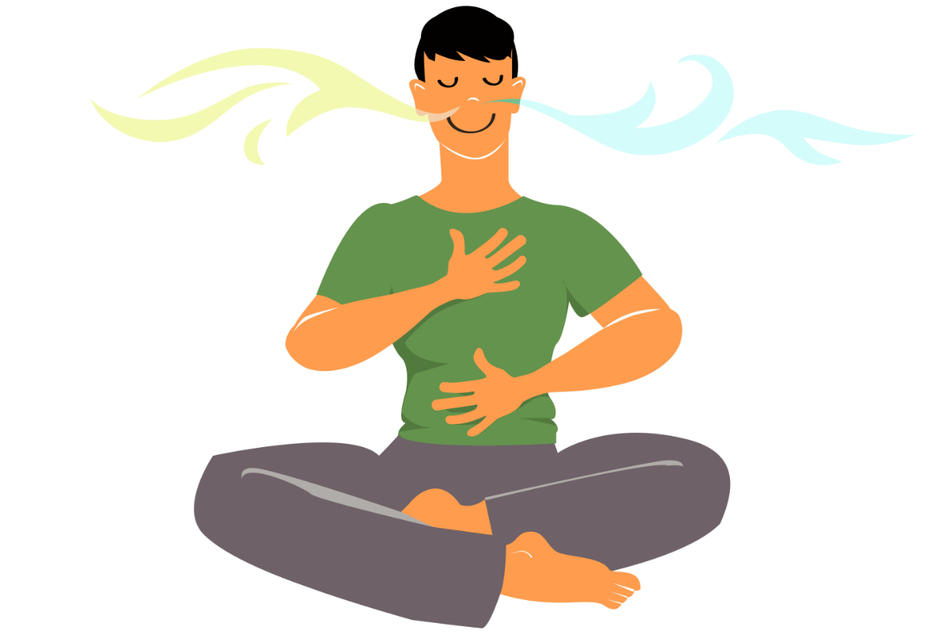2022 Anxiety? Five mental health tips for a tough year
As the years since the pandemic began have been laden with uncertainty, our mental health and sense of well-being are being tested again. It's OK – and normal – to feel like you're treading water, but you got this! And TAG24 is here to help.

The Covid-19 pandemic has opened up conversations about how to provide more widespread and culturally sensitive mental health support for all ages, especially after Surgeon General Vivek H. Murthy warned of an emerging youth mental health crisis in December.
Why is it so important to normalize these discussions? Loretta Whitson, executive director of the California Association of School Counselors, shared a message she recently received about a young student who went to see a school counselor after attending a mental health presentation and is now in much-needed therapy.
"'You gave that 12-year-old the courage to save themselves,'" she read from the text message.
"I love that," she said. "The courage to save yourself."
Learning to prioritize and manage your mental well-being — especially when the trauma is real and being anxious makes sense — is a process that requires patience.
There are many oft-cited recommendations for improving your mood, including exercising, maintaining a healthy diet, getting enough sleep, and meditating.
But different people have different socioeconomic and environmental stressors — and it's often beneficial to connect with people who relate to your particular struggles and can share coping strategies that have worked for them.
We've broken down some basics of mental healthcare for those who'd like to seek help but may not realize what their options are. While this is not a substitute for medical advice, diagnosis, or treatment provided by a professional, here are some tips that may help you on your journey.
1 - Find mental health care wherever (and however) you can

Individual sessions with a therapist are effective for a lot of people. For others, they're expensive, time-consuming, or impractical. But therapy can come in many different forms, and if you can, make it a habit and priority to manage your mental health before you reach a breaking point.
Maybe you could use a dose of curated TikTok therapy to learn some simple skills. Whether it's therapist Courtney Tracy (@the.truth.doctor) explaining different types of anxiety, psychologist Raquel Martin showing a grounding technique she uses with her patients, or those with similar experiences bonding over how they deal with trauma – selectively choosing positive social media influences can, in moderate doses, be helpful.
What you might need is to also find your community and tell — or hear — your story. Comedian D'Lo told The Times about the workshops he runs that help South Asian immigrants tell their coming-out stories. He also performs autobiographical solo shows, which can be a therapeutic experience for both him and his fans.
"It is the vehicle of comedy that allows people to look at their own story through my story and not feel like it's so overwhelming," he said.
If you can't afford professional help, you can look for other options. Your workplace, school, or place of worship may have free sessions with counselors. There are also free hotlines and support lines to call.
Additionally, many mental health smartphone apps offer free or low-cost trials — and guidance online for how to pick a good one. If you have insurance, you might start with the ones your insurer recommends or provides for free. Or, you could find an online community discussion board to interact with others and seek some advice on what you're looking for.
Remember: Always take any unlicensed opinion with a grain of salt.
2 - Personalize your mental health care

All of us need to rest and de-stress, but what does resting and de-stressing look like for you?
Does it look like sitting in a cross-legged position and chanting mantras, or does it look like hiking up to the highest peak in your area?
Does it look like curling up in a blanket and reading, tending to your garden, getting to the ocean, or playing your favorite video games? Find the combination that leaves you feeling rejuvenated.
Similarly, if you're looking for a therapist, what kind of therapist would be best at understanding your challenges? Have you had to say goodbye to a loved one? Are you having grief linked to climate change? Are you a teacher who is feeling burnt out?
A therapist's job is to help you with your goals for mental well-being. So first, try to map out your goals on what could bring you joy and replenishment.
3 - Destigmatizing mental health challenges can start with you

2021 was the year that athletes such as Simone Biles and Naomi Osaka showed us it's OK not to be OK.
Sharing our own stories — even if it's just to our small circle of loved ones — can encourage empathy and help others feel less alone.
This includes when we are talking to young kids about difficult topics. The American Psychological Association encourages parents to acknowledge their own feelings and emotions to show that they're human.
And don't forget that destigmatizing mental health challenges includes giving ourselves grace when we're struggling.
Dave Leon, a therapist and founder of the mental health nonprofit Painted Brain, says he's rarely trying to change the patient. Instead, he's trying to help them change their relationship with the environment around them.
"What I've seen, especially with my own experience with depression — and with people with anxiety, people with personality disorders — is that a lot of it is a very realistic reaction to the crazy, insane contradictions that we're expected to make to live in this world," he said.
It may be helpful to be able to separate yourself from surrounding stressors, and know that many others are experiencing the same challenges.
4 – Learn how to relax your body quickly when faced with stress

Marlene Valter, psychologist and founder of the mental health company AnaVault, acknowledged that not everyone is able to take a break or walk away when something stressful happens.
Valter suggested getting in the habit of taking five to 10 seconds to scan your body for tension from the top of your head to your toes, relaxing all your muscles along the way. And you can do that throughout the day, 50 times a day, she said.
"Now when you're facing a stressor, a deadline, a difficult boss or co-worker or family member, you can take five seconds to relax and face the trauma and forever change the wiring of your brain," said Valter. "This gets you off of an old hamster wheel of anxiety."
At the end of the day, she said, it's not about living a stress-free life. It's about tackling your challenges with a more clear mind.
5 - Always feel free to reassess

If whatever you're doing to manage your mental health isn't working, try something else, whether it's a new form of self-care or another therapist.
"I always tell my clients during the consult that the first few sessions are going to be assessing fit," Anjali Alimchandani, a psychologist and an advisory board member of the National Queer & Trans Therapists of Color Network told The Times. "You might feel good with me but, as we are talking more, find that it's not the right fit, and that's absolutely OK."
"If a therapist doesn't work out, that doesn't mean therapy is not a good fit," David Rudesill, a psychotherapist at Cal State Los Angeles, said.
"Find another one. Some people do this for several sessions, or even for years, and then they drop out, they stop going or they make an excuse, and it's unfortunate, because something didn't change that they wanted to change."
Reassessing your situation, your decisions, or your purpose can also be helpful. Therapist Brian Torres works with clients in the entertainment industry who feel trapped, and he encourages them to consider a career Plan B, even if it's just as a thought exercise.
"If you start this inquiry about what else is there, you may feel less stuck," Torres said. "I try to just slowly make room for what else could bring you happiness."
Change, in however small a step, can make room for growth and light for the year ahead.
SAMHSA’s National Helpline, 1-800-662-HELP (4357), (also known as the Treatment Referral Routing Service) is a confidential, free, 24/7, 365-day-a-year information service, in English and Spanish, for individuals and family members facing mental and/or substance use disorders.
This service provides referrals to local treatment facilities, support groups, and community-based organizations. Callers can also order free publications and other information for help.
Cover photo: Collage: 123RF/nunataki & pogonici

